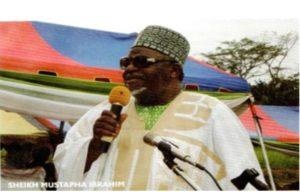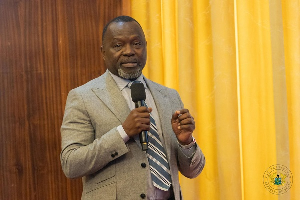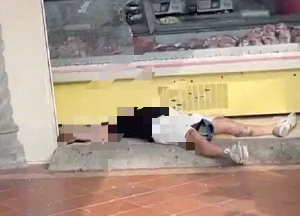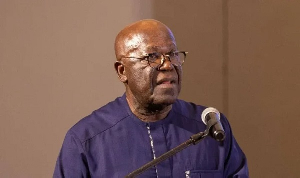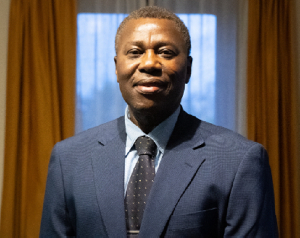As has been the case, governments across the world are required to promote the agenda for development by making life easy for the people.
To meet the growing needs of the people in Ghana, succeeding governments have been pushing for the execution of infrastructural developments that include roads, educational institutions and health facilities.
However, succeeding governments were not allowed to shoulder the nation's development agenda all alone.
Apart from known major European donor agencies, one organisation among many local non-governmental organisations that has become prominent in humanitarian activities in Ghana is the Islamic Council for Development and Humanitarian Services [ICODEHS].
For the past three decades, it has succeeded in providing many communities in Ghana with clinics, schools mosques, and orphanages, and is providing support for many orphans with cash, food and clothing, and assisting them to pursue education.
The organisation, which begun as a Book Development Council, has written many books to educate people, young and old, to appreciate morality through Islamic laws and principles. ICODEHS has gone further to sponsor a radio programme on Marhaba FM every Sunday night, to educate people on moral development, using Islamic principles, using texts from the Sunni [activities] of Prophet Mohammed as narrated by his followers, and from books written by Sheikh Mustapha Ibrahim, Chairman of ICODEHS.
Due to its remarkable service to the nation and its people, especially the needy, ICODEHS has won many national and international awards, which were received by its Chairman, Sheikh Mustapha Ibrahim. ICODEHS has also been granted permission to extend its humanitarian services to other African countries like Nigeria, Togo and Senegal.
The latest remarkable service ICODEHS has just provided the people of Accra is free eye screening and surgery at the clinic of the organisation at Akweteman in Accra.
According to informed sources, this is not the first time the council has carried out eye treatment and free medical care to the needy in Ghana, saying that it would be continued periodically, using local doctors and nurses, with funds from the Dubai Charity Society.
Apart from the free medical service, ICODEHS has also extended potable water to many communities, through the digging of boreholes and wells.
The newest of this is a well fitted with a hand pump, which was dug with funds from the RAF and commissioned for use by the people of Fa'adi in the Ashanti Region.
The beneficiaries of the project were delighted, because water from the well would serve their needs of clean water needed for cooking and drinking, and for ablutions.
The magnanimity of ICODEHS was also extended towards providing girls and ladies in Accra with sewing machines and refrigerators to meet their needs.
The beneficiaries were delighted, because, while the sewing machines would help the girls be able to pursue the vocations they learnt from school, the beneficiaries of the deep freezers would fill them with soft drinks and sachet water for sale, and use them in creating ice blocks for sale.
The items were provided with funds from the Red Crescent Society of the United Arab Emirates [UAE].
ICODEHS has also provided free school uniforms with hijab to some female students.
ICODEHS has also supported the people of Sekondi Zongo to cut the sod for the construction of a clinic.
The sod was cut by the Deputy Regional Imam of the Western Region, Mohammed Sani Abdulai, to be built by ICODEHS with funds from the Red Crescent Society of the UAE.
Apart from the clinic to be built in Sekondi, a new Mosque would also be built at Akwatia Line, Kumasi, under the supervision of ICODEHS, with funds from the Red Crescent Society of the UAE. Apart from the above projects, five newly-built mosques by ICODEHS were commissioned for use by Muslims at Kpatuya and Sali Fongboth in the Northern Region, Alhaji Jibril Mosque in Dambai in the Volta Region, Senti in Sissala East in the Upper West Region, and Namboo Sambolga in the Upper East Region.
All the mosques were built to provide the people in the localities with decent and spacious places of worship.
Opinions of Wednesday, 23 August 2017
Columnist: Ghanaian Chronicle

